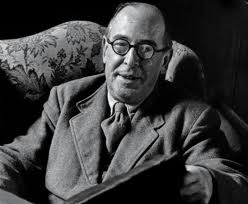Before moving on to other things, I want to share one more passage from the writings of C. S. Lewis that I appreciate as a historian. As I have shared in the previous three posts, even though Lewis was a specialist in ancient and medieval literature by training, he had some remarkable insights into the nature of history. Although I just wrote “even though” (as if Lewis’s training in literature was a hindrance to historical thinking), the more I think about it, the more I am convinced that Lewis’s historical insights were a result of his training in literature, not in spite of it.
To begin with, because he specialized in very old literature, Lewis was constantly faced with a challenge that every history teacher knows well, namely the difficulty of convincing a present-minded society that we have much to learn from previous ages. Of necessity, he perfected a persuasive case against what he liked to call “chronological snobbery.” Second, his immersion in stories helped him to appreciate that what we call “history” is not the past in its vast totality but instead the stories (hopefully true) that we tell about our pasts as we try to make sense of our lives and of the world around us.
Lewis’s appreciation of history as story comes through powerfully in his essay “Historicism,” which I alluded to two posts ago. In “Historicism” Lewis takes on those amateur students of history (most commonly politicians, pastors, and pundits) who are convinced that they can, “by the use of their natural powers, discover an inner meaning in the historical process” or discern the ultimate historical meaning of particular historical events. From Lewis’s perspective, any attempt to do so apart from divine revelation is a fool’s errand. The historian rightly does his or her best to determine what has happened in the past, to explain what has happened, to evaluate what has happened, perhaps even to suggest how to learn from what has happened, but the historian, as a historian, must not try to tell us the ultimate meaning of what has happened. To do so, Lewis insists, is at worst “positively mischievous,” at best a “waste of time.” Why does he think so?
To understand the answer, we start with Lewis’s appreciation of history as the story of humanity. As someone whose professional life was given to interpreting and constructing stories, Lewis knew that the significance of any character or action in a story is determined by the story’s overall plot. As an example, he imagined discovering a six-line fragment of a lost Greek play. We might be intrigued by the mention of an action or a character, but without a clear sense of the plot of the play we would not know what significance to attach to either.
When we study history, we find ourselves in much the same situation. At its broadest, we study history in order to gain greater understanding into our own place and time. Fighting our narcissistic tendency to see the world as revolving around us, the study of history challenges us to situate our brief sojourns on earth within a far larger story, the unfolding drama of the human race. But what is the plot of that larger story? Apart from divine revelation, Lewis contends, the plot would be utterly unknowable. Like the scholar who stumbles across a mere scrap of a Greek play, we simply don’t have enough to go on.
Lewis’s keen insight was that we have only a fragment of the script of the human drama. I have already called attention to his eloquent distinction between history and the past. If the past can be likened to “a roaring cataract of billions upon billions” of moments,” what we call “history” consists of that minute fraction of the total that can be recaptured in the surviving historical record. What the historian works with is not the past itself, Lewis realized, but “fragments, copies of copies of fragments, or floating reminiscences of copies of copies.”
But it is not just that most of the script of the drama before we show up has been lost. Some part of the play—how much we don’t know—has yet to be performed. Lewis understood that our efforts to discern the ultimate meaning of history not only require a comprehensive knowledge of the past. We need to know the future as well—a sense of where “history is headed”—if we are to position ourselves in its trajectory. The problem is that “we have no notion what stage in the journey we have reached. Are we in Act I or Act V? Are our present diseases those of childhood or senility?” The play has already started when we arrive, and in our short time on the scene we cannot even conclude whether it is a comedy or a tragedy. This is because, as Lewis puts it, “a story is precisely the sort of thing that cannot be understood till you have heard the whole of it.”
Throughout “Historicism,” Lewis makes clear that what he is criticizing is not the longing to find ultimate meaning in history, but rather the pretentious claim to be able to discern such meaning apart from the revelation of God. As Christians, this should both encourage and convict us. We are encouraged by the reminder that the human story is not simply one thing after another, a meaningless tale without plot or significance. We are convicted when we realize how often American Christians have presumed to proclaim God’s understanding of our nation’s past or His purposes for our future. Such assertions are never historical conclusions, rightly understood. They are prophetic declarations.

